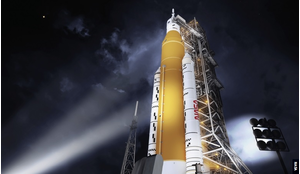Mars has long been a target for future human settlement, but the more the space community thinks about it, the more challenging it seems. Stephen Ashworth reviews some of the issues and proposes an interim solution that he hopes will inspire others to act.
A huge amount of interest has been generated in recent months by the flight tests of Starship, SpaceX’s super-heavy rocket designed to enable the colonisation of Mars. Meanwhile, the Mars Society has attracted entries from no fewer than 175 teams from around the world for its Mars City State Design Competition, exploring architectural concepts for a Martian city of one million inhabitants. And in February 2021, three new robotic explorers from the USA, China and the United Arab Emirates arrived successfully at Mars.
Momentum is thus building towards astronaut flights to Mars within as little as the next 10 or 20 years, and there is an increasingly real possibility that a permanent settlement will have been established on the red planet before the end of the century.
A self-sufficient human colony on Mars would clearly be of immense value. It would not only serve as backup in the event of any global downturn in the progress of civilisation on Earth, whether through political extremism, economic collapse, war, or environmental disaster. It would also act as proof of concept for the view that humanity has an open-ended future of expansion into the rest of the universe, and by doing so help to ensure the security of life on Earth as well. There are, however, two problems with this rosy vision.














